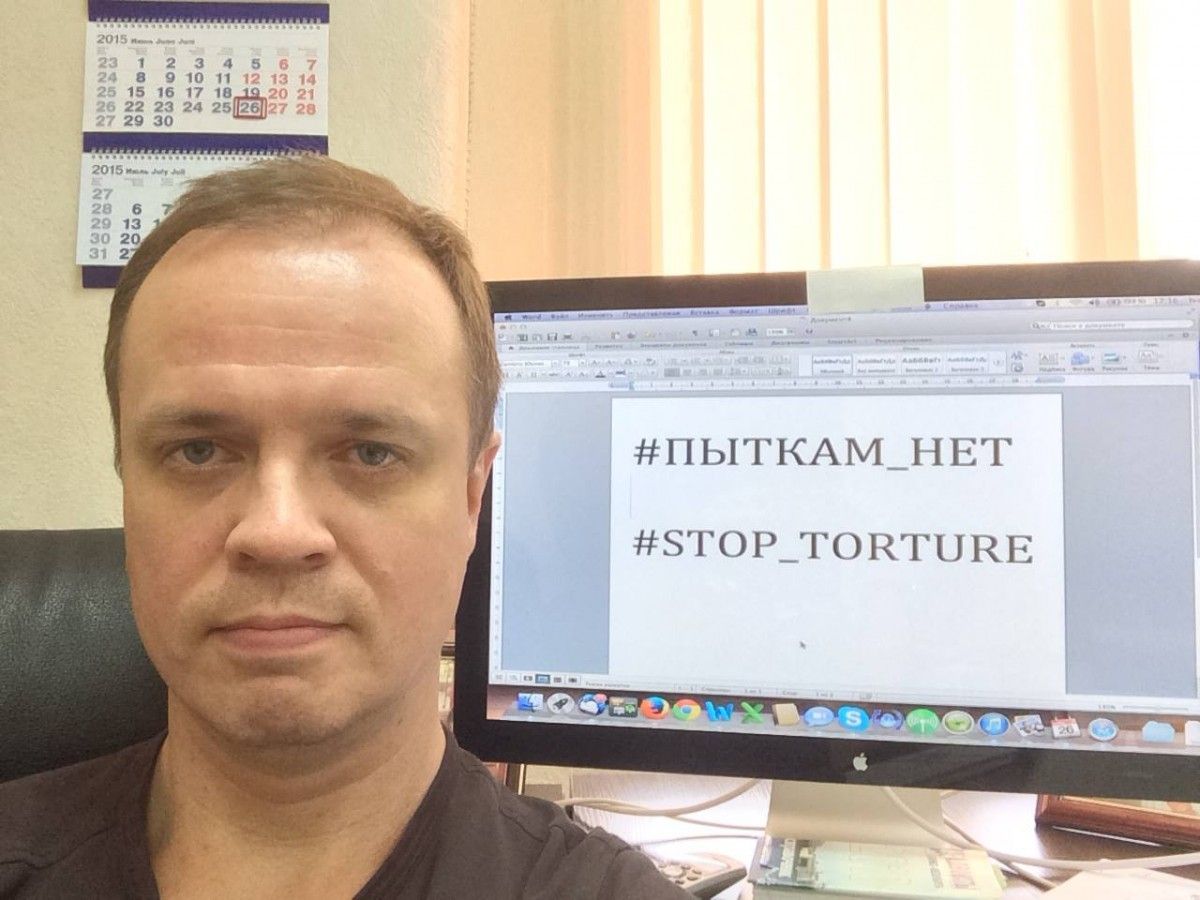
Lawyer Ivan Pavlov: "In Russia, everything related to Ukraine has been politicized. I believe, they can even find some political overtones in a word "Borshch"
Russian lawyer Ivan Pavlov, specializing in "spy cases" the Kremlin has been fabricating, sat down with UNIAN to explain, why the number of citizens of both Ukraine and Russia, persecuted by Putin’s regime for "extremism", "espionage" and "treason" will further be growing.
The Russian man interviewed by UNIAN has a non-traditional job. For more than 20 years, Ivan Pavlov has been defending those accused of espionage.
Pavlov calls himself the captain of "Team 29", an informal association of lawyers and journalists who continue to fight for the freedom of access to information in the Russian Federation. The name is not accidental: Article 29 of the Russian Constitution protects the right to freely seek, receive, transmit, produce, and disseminate information.
Pavlov is convinced that the Russian law enforcement practice regarding articles of the Criminal Code on "treason" and "espionage" actually limit access to information.
His experience shows that the number of citizens of both Ukraine and Russia, who will be charged under these articles during the Russian-Ukrainian conflict and even after it ends will only increase. Russian penal system sometimes, years later, hunts its targets down and jails them according to court orders.
The lawyer has been actively engaged in "Ukrainian cases". He has successfully defended Svetlana Davydova, a mother of seven, whom Russian authorities wanted to imprison for her phone call to the Embassy of Ukraine. At the moment, he is a lawyer in the case of Director of Ukrainian Literature Library in Moscow, Natalia Sharina.
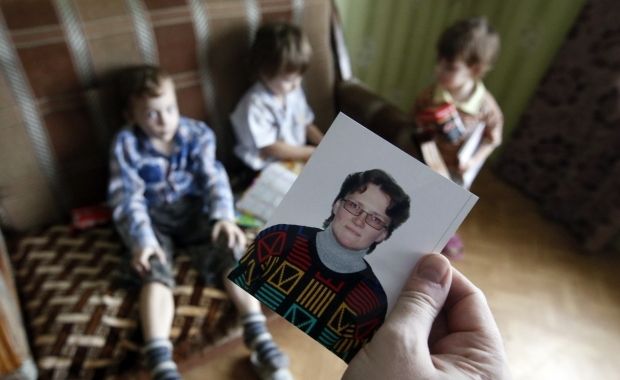
In an interview with UNIAN Ivan Pavlov has described how the investigators work on such "cases" and why it is important not to give in to pressure and not to incriminate yourself.
Ivan, you’ve been known as a leader of "Team 29", which is engaged in "spy cases". How did you get such specialization?
I began to deal with such cases as early as the mid-1990s. At the time, I was a member of a team of defense lawyers, led by Yuri Schmidt, who worked on the case of Alexander Nikitin. The man, accused of treason, is an ecologist, former head of the nuclear safety inspection team for the Defense Ministry’s nuclear facilities. The case had been launched in 1995, and only in 2000 was the defendant acquitted by the Supreme Court of Russia. In 2001-2003, I also defended a military journalist Grigory Pasko, who was accused of passing classified information to Japan.
My professional interest is protection of freedom of information, while these spy cases limit such freedom. Our "Team 29" is known as the defenders of freedom of information, and I am known as a lawyer with relevant experience and reputation. Our name honors Article 29 of the Constitution, guaranteeing freedom of information.
Could you tell us about a new "wave of espionage" in Russia, when the Russians are, for example, imprisoned for text messages about the movement of the Russian army in 2008 during the war with Georgia?
A Russian woman Oksana Sevastidi was sentenced to seven years in prison. Two of her text messages sent in April 2008, shortly before the war with Georgia, became grounds for persecution. Sevastidi wrote to her friend in Georgia that she saw a train loaded with military equipment heading toward Abkhazia. Information included in that message was deemed classified, while the woman’s act was perceived as treason through espionage, i.e. the collection and transmission of information classified as a state secret.
But she was an ordinary citizen without any access to classified material...
You don’t need have to access to classified data to be sentenced for treason or espionage.
Did you start working on this case after Oksana Sevastidi was convicted?
We have just recently learned about the case, and at the time, Sevastidi was already serving her sentence. Now we are trying to restore the term for the appeal against the verdict.
How many people got into a similar situation after the war of 2008, being convicted under "spy articles", according to your information?
In Krasnodar region alone, at least ten criminal cases have been initiated, and all of them resulted in a conviction.
If that "Georgian dossier" saw at least ten "spies" for the five days of the war, can we expect a new wave of "traitors" during the war with Ukraine?
No one is immune. Such practice exists. It has been worked out in Krasnodar and on the cases of Sevastidi, Kharebava, and other convicts. Any other court can now implement this practice in their region. There has already been that case of Svetlana Davydova - though it was not a text message but a phone call to the Embassy of Ukraine in 2015. But we, thank God, we won that case.
How can the Russians, who had with their calls, texts, or other type of correspondence warned their relatives on the other side of the Russian-Ukrainian border?
I can’t give any universal recommendations in this case, as the situation has already developed in such a way, and there are certain risks. We are now aware of this, and that's good. Now it will not be a surprise to us when this wave of spy mania will repeat itself in connection with the Ukrainian events.
You remembered about Svetlana Davydova. Do you think that the fact that the mother of seven was released from prison is due to your efforts or the so-called public outcry?
In the case of Svetlana Davydova, two events were important. The first one is her release from the detention center, after which an investigation continued. Even after she was released, the investigator told her he would put her to jail anyway. Public outcry was caused by the very fact that she had been held in a pre-trial detention center during preliminary investigation. Many believed that, even if she was guilty, there was no reason to keep the mother of seven in jail rather than put her under house arrest.
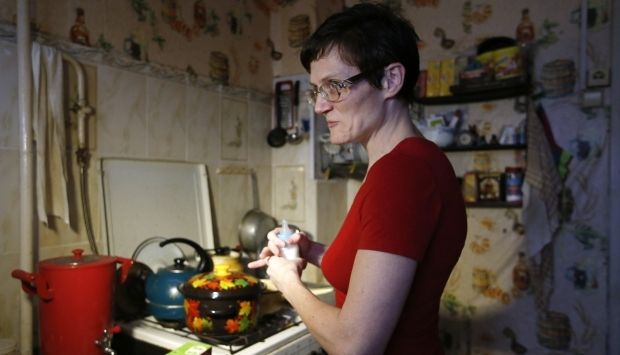
After that came that laborious long work on her defense, and her innocence has been proven.
Has Svetlana Davydova been completely acquitted?
Yes, she is.
You have tried to appeal against the decree of the Russian president on classifying losses in peacetime. On the one hand, this is purely a lawyer's work, on the other – it’s about human rights. In your opinion, why is it so important that this Putin's decree be canceled?
We believed and continue to believe that this decree keeps the public oblivious to how our soldiers are dying. This primarily was due to the Ukrainian events and a secret deployment of our troops in Syria before the official start of Russia’s military campaign [in Syria]. Even if we didn’t succeed in challenging the decree, the public heard us and apprehended the subject. To some extent, the government’s position was also revised. I have not heard that lately that our losses in Syria were being hidden en masse: otherwise, we would have seen criminal cases, persecution for the disclosure of such information.
And what about Russia’s losses in Ukraine?
While our armed forces are officially present in Syria now and hiding losses would be pointless, a secret operation is ongoing in Ukraine. The authorities deny the presence of Russian troops in Ukraine - of course, no one will recognize losses, either.
You are known as a lawyer who specializes in cases under "spy articles". What is the reason for the emergence of those numerous cases against Ukrainian citizens?
This is a logical and natural process during the war. Someone fights the "external enemy", while secret services keep searching for the "internal foes". Articles on treason and espionage simply help in such a search." Against the backdrop of Ukraine events, they will be looking for those who "cooperate" with Ukraine - not only Ukrainians, but also Russians, as shown by the case of Davydova. The investigation classified her act as treason: articles 275 and 276 are twins, designed to define "internal enemies."
Article 275 is treason, and Article 276 is espionage. The difference is that treason has three forms, including the form of espionage. At the same time, Article 276 is purely espionage, which means it applies only to foreign nationals, while Article 275 applies to Russians.
But what about the most "famous" Article 282 (inciting hatred and enmity)? Is it their "cousin"?
Article 282 provides for liability for the actions aimed at inciting hatred and enmity. It also concerns the freedom of information, and, in my opinion, it is one of the most harmful norms in the Criminal Code of the Russian Federation. Articles on espionage and treason exist in almost every country, so I've never stood for their complete abolition. Another question is that in Russia, the wording of these articles requires major adjustments.
Article 282 is another matter, as it brings real damage from the legal point of view. Under the article for inciting hatred, for some reason, they don’t accuse the "incited" ones but those who “incite”. Well, would you rather accuse a girl in a short skirt, instead of a rapist, whom that skirt allegedly incited to commit an act of violence? According to the logic embedded in the wording of Article 282, it’s the girl who is to blame in the first place.
When a Ukrainian journalist Roman Sushchenko was arrested, I was repeatedly told that Ukrinform had made a mistake by choosing Mark Feygin as his lawyer, instead of you, the spy cases expert. What do you think of this case?
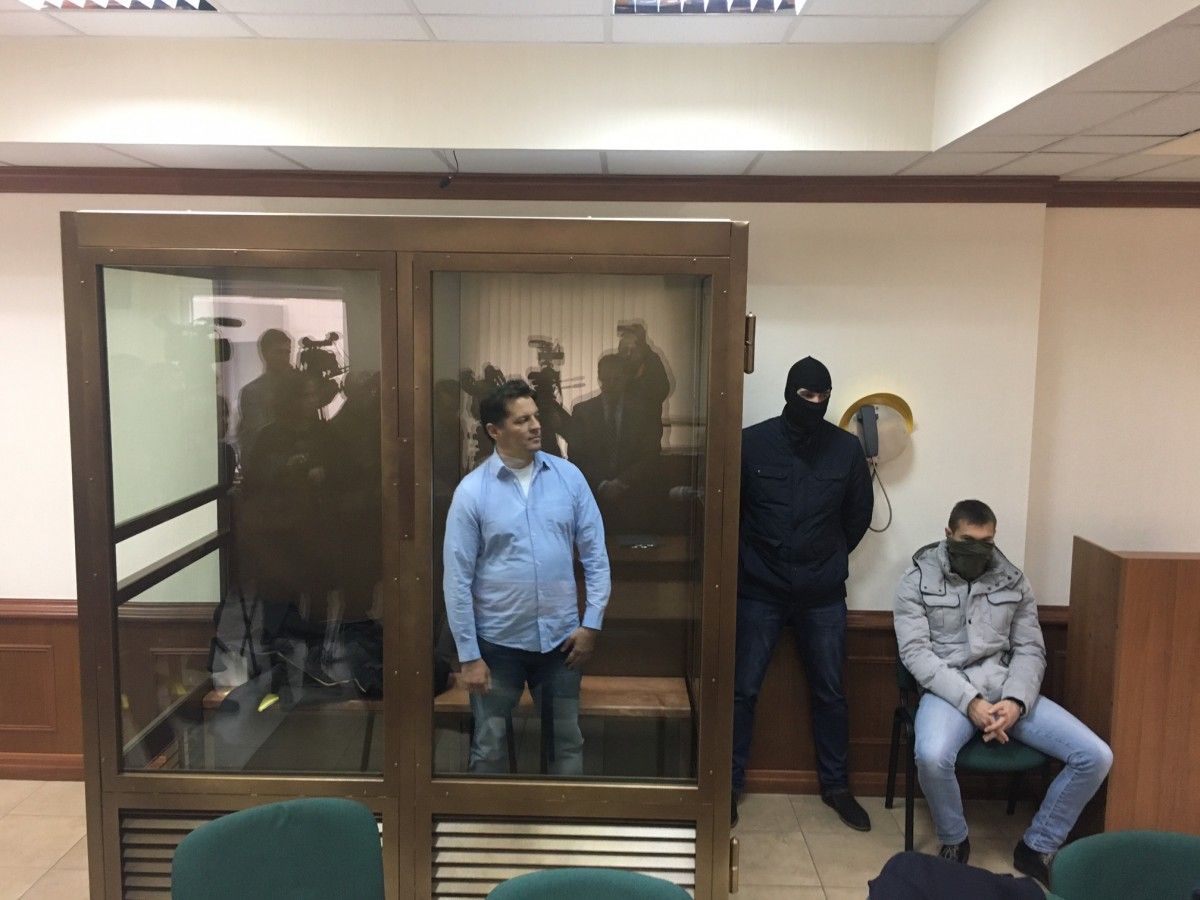
I will not comment on the case of Roman Sushchenko because I am not involved in it. I even don’t know what exactly he is accused of. In cases we take part in, we tell the public, what exactly our clients are charged with. It is always possible to find a balance: at the same time and not to disclose state secrets and to satisfy public interest. Since I only know that Sushchenko has been charged with espionage, I don’t understand what actions the investigation believes to have been illegal.
If we analyze the cases against the citizens of Ukraine, it turns out that none of them was released by the court. All of them were sentenced to lengthy prison terms. How is it better to defend these people - to rely solely on the legal framework and appeal to the law, or to focus on the public component of the process?
Each case is unique, we can’t generalize here. In the case of Davydova, there were moments when publicity was needed, and we communicated with the media, spoke openly and gave comments. But there was a time when I announced the "silence mode", we refused to comment, we just said nothing and gave no interviews.
At different stages of the process, we apply different tactics: everything the defense does must be done in the interests of the client, to achieve the desired result on protection of their rights. At the same time, we understand the importance of these cases for the society: we will never mislead the public. It is better to remain silent than to report incorrect information.
Recently the first "Ukrainian saboteurs" charged with plotting terrorist attacks in the occupied Crimea were transferred to Moscow. Once they were allowed independent lawyers, Yevgeny Panov and Andriy Zakhtey reported of torture. Is it a common practice for Russia – to knock guilty pleas out of "saboteurs" and "spies"?
We can assume that the detention of persons accused of terrorism and sabotage is carried out with the force, and this could explain the injuries. But cases of treason and espionage, in which we participate, are for the most part linked with non-violent crimes, and no one goes for any substantial use of force. This does not mean that the testimonies are not forced out of the suspects – this might not only be a physical force but also psychological pressure. For example, Svetlana Davydova was simply forced to incriminate herself as she was a feeding mother, with many children at home, so she would sign anything just to be allowed to go back to her kids. They assured her that she had to plead guilty and that the court would take it into account. But the court would never take this into account, so she was just misguided.
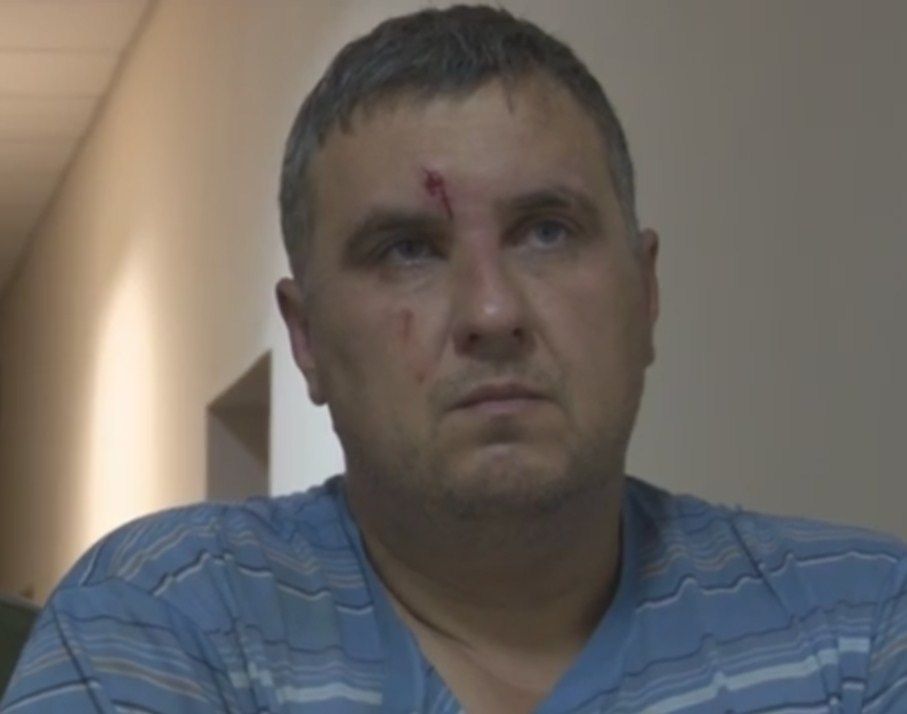
The question is not so much about the investigators, it’s about the state-appointed lawyers, who are waiting for their client in the investigator’s office as a piano in the bushes, even before the defendant is detained. In cases I dealt with, none of the free public defenders, unfortunately, advised the suspects not to incriminate themselves or to refuse from testifying. The initial interrogation reports involving such appointed defense lawyers are the most voluminous and include testimony of the accused against themselves. It is not clear what exactly the job is of such lawyers and what kind of assistance they provided to their clients.
Is this some common practice or was it the case with Davydova?
It’s practically universal. The first lawyer, the defender appointed by the investigation, does more harm than good. The appointed lawyers have the opportunity to convince people not to incriminate themselves, warn them that, in order to get a guilty plea, they will be pressed upon, they could also explain that it is possible to choose another lawyer… But in practice, the new defense lawyers are really struggling with cases they take over after such “lawyers”. They see multi-page reports where the accused confess in crimes, even if they didn’t commit them.
You have 20 years of experience in this field. Have you ever actually seen a real spy? After all, these cases may just look as persecution by the state machine...
Unfortunately, over the twenty years, I’ve never encountered a real spy.
You mean, a conditional man in an expensive suit, sunglasses, who steals classified documents from a safe?
I mean those whose guilt I did not doubt.
It turns out that the security services and counter-intelligence agencies are on hunt for their own citizens and foreigners only to justify their existence, is that right?
Exactly. They are justifying their existence, they make careers on such cases. Officials involved in the investigation often get a boost in their rank and position.
But this is a fake, and everyone understands it – both supervisors and officials who fabricate these cases...
But this also means good reports and good statistics.
You are now defending director of Ukrainian Literature Library Natalia Sharina. Another hearling was held December 9. Please, tell us how it went…
On December 9, there was an interesting meeting. We interviewed three witnesses. In particular, it was former head of the Moscow Department of Culture Romuald Krylov-Iodko, Sharina’s supervisor and her curator in the department.
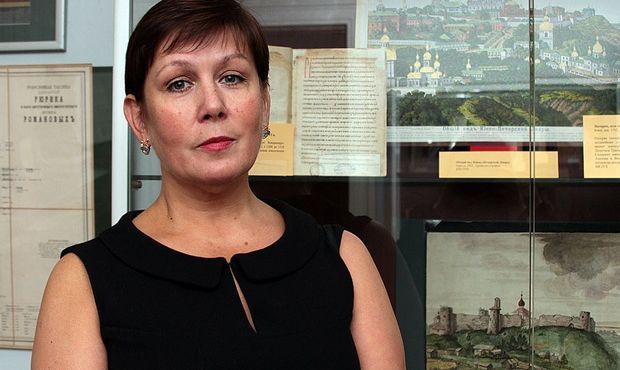
With his testimony, Krylov-Iodko from start to finish refuted almost all charges. The accusation of extremism is ridiculous as such, and frankly, no one has grasped what were Sharina’s extremist actions exactly. So we all just ask people what they think of Sharina’s personality, we ask them if she allowed any anti-Russian or anti-Russia statements. Her former chief has stressed that she is very discreet and well-mannered, she has never allowed any extremist statements, and she is not someone who would provoke conflict situations.
The accusation of extremism should be based on direct intent of the accused. And if they did not bother to explain to us, of what actions our client was accused, we will at least prove that she even had no intent to commit extremist acts.
Also Krylov-Iodko testified on Sharina’s embezzlement charges. He said that it was he and his leadership in the Moscow mayor's office who insisted that Sharina hired a lawyer at the expense of the library. The lawyer represented the interests of the institution in 2010, when the library was first raided with a search warrant, and, as it turned out, Krylov-Iodko authorized it personally. He also said that Sharina had to hire lawyers, and therefore the staffing was changed. Vacancies of lawyers were opened on his order, and that became grounds for Sharina to hire employees.
Krylov-Iodko’s testimony smashed to smithereens both the initial accusations of extremism, and those of the embezzlement. I have no idea how the investigation will find a way out of this mess. During the hearing, they tried to find contradictions in this witness testimony but Krylov-Iodko smoothly countered them, saying that he was ready to defend his words.
Then Yevgenia Yegorova was questioned, his former deputy in the Department of Culture, who confirmed this testimony. The third witness was Ms Kovaleva, deputy administrative director in the Library of Ukrainian Literature, but she also said nothing that would be helpful to the prosecution.
Were they witnesses for the prosecution?
Yes, they were prosecution witnesses, that’s the point.
What is the real reason Sharina is being tried in court today?
I think she is being tried because of the idleness, stupidity, and obstinacy of the Investigations Committee staff. There is no real ground for this case, the accusations are absolutely absurd, and I'm not even talking about the legal aspect. To close down the library, they didn’t have to spend so much of the resources, including reputation. It is a public institution, which could be closed with a single decree instead of plotting a complex combination.
In this scenario, some Ukrainian “extremists” can be caught...
Looks like it. The result we see is that the mountain in labor has brought forth a mouse. It is still unclear, of what Sharina is accused. It does not fit into the picture of the world. How can a library director be accused of extremism after all? You can just go to any library and search there. For example, in the Lenin library, there certainly are some books, banned in Russia. Why don’t they slam on the director and all the staff of that library then?
This case was initially permeated with politics. Sharina is the director of a library, but not a Belarusian or Kazakh one. Everything related to Ukraine has been politicized, and this case is no exception. It seems that even in the word "Borsch" they can find some political overtones.
Roman Tsymbaliuk, Moscow

